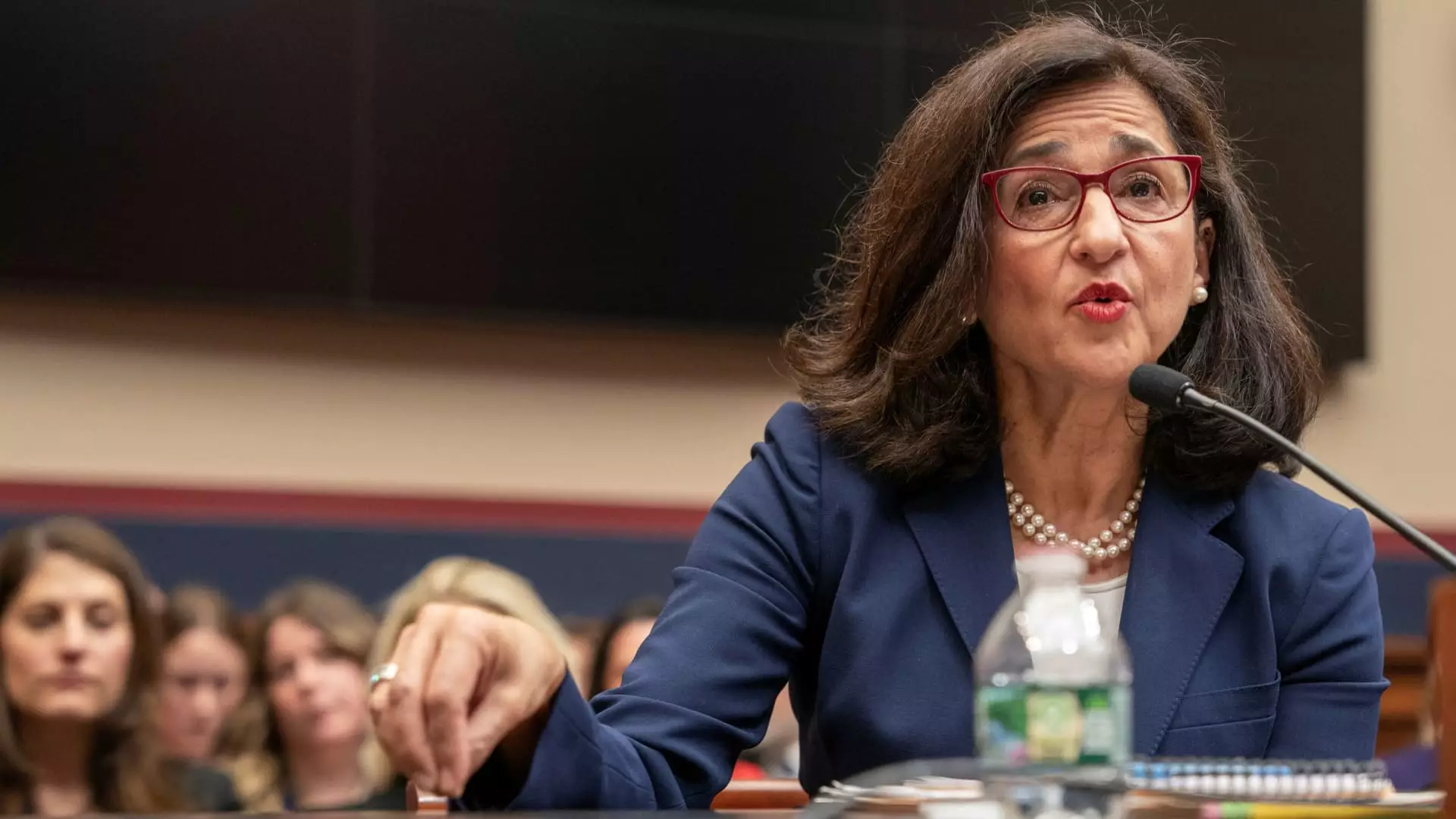Amidst the ongoing protests on the Manhattan campus over the war in Gaza, Nemat “Minouche” Shafik, the president of Columbia University, announced her resignation on Wednesday. This decision came after facing criticism and backlash from various parties, including anti-war protesters and House Republicans in Congress. Shafik acknowledged the challenging period during her tenure, stating that it had taken a toll on her family and the community at large.
During her term as president, Shafik faced scrutiny for her response to the protests on the campus. She requested the New York City Police Department to clear encampments set up by demonstrators in solidarity with Palestinians. Despite the clearance of the initial encampment, another one emerged, leading to further tensions. The situation escalated when protesters took control of Hamilton Hall, prompting the NYPD to intervene at the university’s request.
In April, Shafik appeared before a House committee to address concerns about the handling of antisemitism on campus. This public hearing added to the pressure she was already facing from both internal and external sources. The resignation announcement mentioned that the decision was made after reflecting on the challenges and allowing for new leadership to take over before the start of the new term.
Columbia University’s Board of Trustees expressed regret over Shafik’s resignation but accepted her decision. Katrina Armstrong was appointed as the interim president, bringing a background in leading the university’s medical center. Armstrong emphasized the importance of moving forward together as a community and renewing the institution’s vision.
The student protest group, Columbia Students for Justice in Palestine, welcomed Shafik’s resignation, attributing it to their persistent calls for her to step down. The group highlighted the importance of future presidents aligning with the student body’s demands, particularly regarding divestment from certain issues. The protests at Columbia were part of a larger wave of demonstrations at universities across the United States following the events in Gaza.
In her resignation letter, Shafik reiterated the values of free speech, openness to new ideas, and zero tolerance for discrimination that are integral to Columbia University. Despite the turmoil and divisions that marked her tenure, she emphasized the endurance of the institution’s core mission and values in facing the challenges ahead. Shafik expressed her efforts to uphold academic principles and fairness while navigating through a period of threats and abuse directed at the community.
The article also mentioned a pattern of university presidents facing criticism and resignations amid political pressures. Instances at other institutions, such as the University of Pennsylvania and Harvard University, where presidents resigned following controversies and allegations, were cited as examples of the broader trend of universities becoming targets for political scrutiny.
The resignation of Columbia University’s president amid campus protests reflects the complex dynamics that can arise within academic institutions during times of social and political unrest. It underscores the challenges of leadership in ensuring academic freedom, inclusivity, and community harmony while navigating external pressures and internal dissent. As Columbia transitions to new leadership, the focus will be on fostering unity, dialogue, and a renewed sense of purpose in the face of evolving societal issues.

Leave a Reply